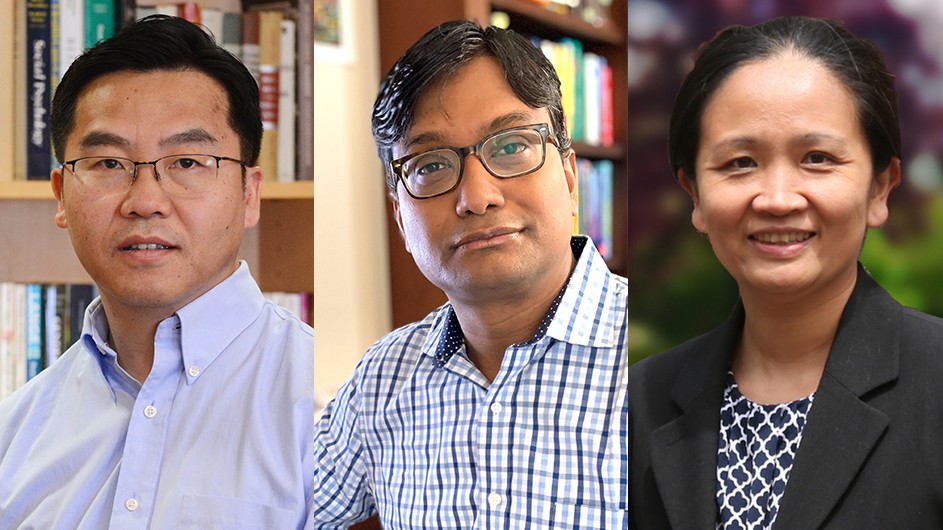Three Columbia professors have been elected as fellows to the Institute of Mathematical Statistics (IMS) in recognition of their achievements in not only statistics, but related fields like machine learning and medicine that depend on innovative methods for extracting patterns and insights from large datasets.
Zhezhen Jin, a biostatistics professor at Columbia’s Mailman School of Public Health, is being recognized for his contributions to statistical computing, resampling methods for valid statistical inferences, and a branch of statistics known as survival analysis, which focuses on questions like disease incidence, life expectancy, risk analysis, and reliability. He has collaborated extensively with cardiologists and neurologists, and served in a variety of leadership roles at Columbia, on academic journals, and in professional associations.
Bodhi Sen, a statistics professor at Columbia’s Graduate School of Arts and Sciences, is being recognized for his work on nonparametric inference under shape constraints, providing a more precise way of estimating a response variable by incorporating an underlying trend moving in the same direction; for example, estimating average global temperature by assuming temperatures are rising. His work on optimal transport has led to new ways of evaluating whether a medical treatment is more effective than a placebo. He has also worked on methods like the bootstrap to measure the level of uncertainty in statistical procedures.
Tian Zheng, a professor of statistics and chair of the department, is being recognized for her work showing that highly significant variables are not always the most predictive, especially when analyzing massive datasets. She has also made important contributions to the analysis of genetic data and developed methods to estimate the size and profiles of so-called hidden populations within social networks.
Founded in 1935, the Institute of Mathematical Statistics is focused on the theory and applications of statistics and probability, with 4,200 active members globally. About 10 percent of members are elected by their peers to become fellows.

